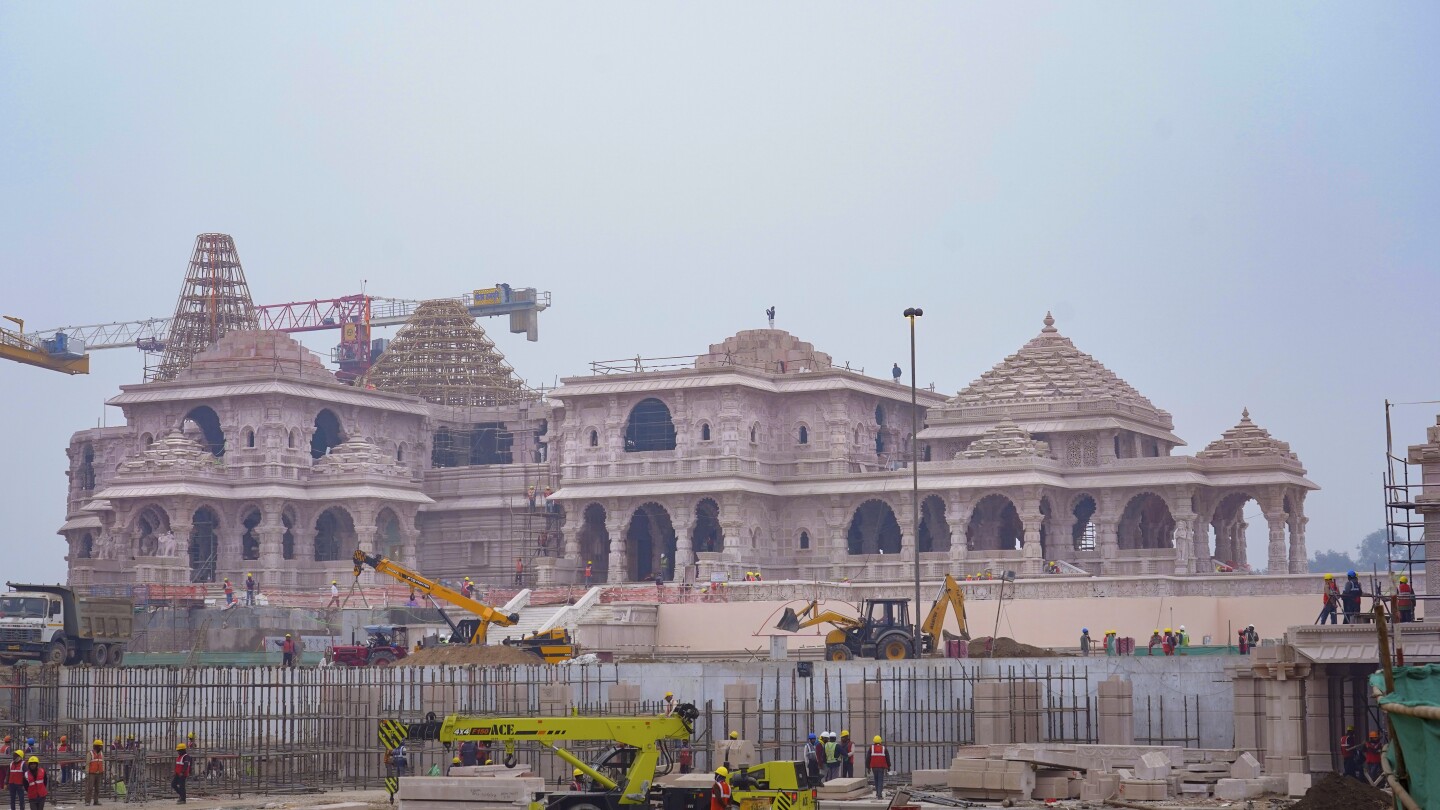Three decades after Hindu mobs tore down a historical mosque, Indian Prime Minister Narendra Modi will attend the consecration of a grand Hindu temple at the same site on Monday in a political move to boost his party ahead of a crucial national vote.
Experts say the temple, dedicated to Hinduism’s most revered deity Lord Ram, will cement Modi’s legacy — enduring but also contentious — as one of India’s most consequential leaders, who has sought to transform the country from a secular democracy into an avowedly Hindu nation.
“Right from the beginning, Modi was driven by marking his permanency in history. He has ensured this with the Ram Temple,” said Nilanjan Mukhopadhyay, an expert in Hindu nationalism and author of a book on Modi.
Many see the temple’s opening as the beginning of the election campaign for Modi, an avowed nationalist who has been widely accused of espousing Hindu supremacy in an officially secular India. Modi’s Hindu nationalist party is expected to once again exploit religion for political gain in the upcoming national elections in April or May and secure power for a third consecutive term.



This is the best summary I could come up with:
Experts say the temple, dedicated to Hinduism’s most revered deity Lord Ram, will cement Modi’s legacy — enduring but also contentious — as one of India’s most consequential leaders, who has sought to transform the country from a secular democracy into an avowedly Hindu nation.
Modi’s Hindu nationalist party is expected to once again exploit religion for political gain in the upcoming national elections in April or May and secure power for a third consecutive term.
Made into a national event by the ruling Bharatiya Janata Party, the temple’s opening in Ayodhya — a small city in northern India that has been a historical flashpoint — is expected to resonate deeply with Hindu voters.
In the early 1990s, then a little-known local leader in his native Gujarat state, Modi also helped organize public agitation that aimed to shore up support for the construction of what is now Ram Temple at the former Babri Mosque site.
The dispute ended in 2019 when, in a controversial decision, India’s Supreme Court called the mosque’s destruction “an egregious violation of the rule of law,” but granted the site to Hindus.
Rebuilding the temple at the disputed site has been part of BJP’s election strategy for decades, but it was Modi — rising to power in 2014 on a wave of Hindu revivalism — who finally oversaw that promise after attending its groundbreaking ceremony in 2020.
The original article contains 965 words, the summary contains 231 words. Saved 76%. I’m a bot and I’m open source!
This is such a biased news article. I expect better from AP but then you see who wrote it and understand it well.